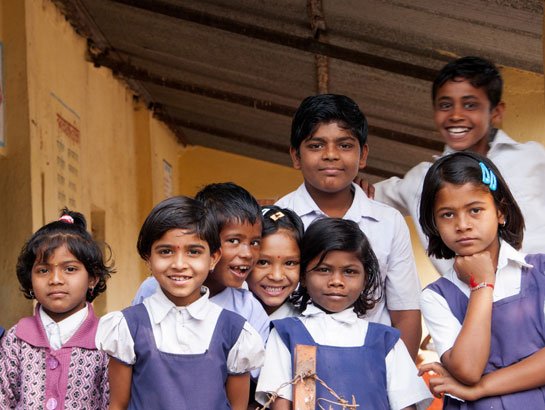“With each meal served, we are not just filling stomachs; we are shaping a future where malnutrition is a distant memory.”
Malnutrition affects millions of children worldwide, particularly in low- and middle-income countries like India. It significantly affects physical growth, cognitive development, and overall health of school children. In the battle against this persistent problem, consuming biofortified grains has emerged as essential, offering a sustainable solution to address malnutrition effectively.
The Health and Nutrition for School-Age Children (HaNSA) program is a collaboration between HarvestPlus and the Happel Foundation. The program aims to integrate locally procured biofortified grains into the meals of two million Indian school children through school feeding programs. This initiative about providing nutritious meals and holistic nutrition education through the Nutri-Pathshala model.
Biofortification is a game-changer. Biofortified crops are bred to contain high essential micronutrients like iron, zinc, and vitamin A. By incorporating these nutrient-rich food products into school meals, HaNSA addresses malnutrition at its core, providing children with the vital nutrients they need for healthy growth and development. This initiative takes a holistic approach to nutrition, addressing malnutrition not only by the providing of healthy meals but also through education and awareness. The program involves nutrition education for children, parents, and communities, focusing on promoting healthy eating habits, handwashing, the importance of physical activity and several other key components.
This program focuses on building strong partnerships with governments, private sector, non-governmental organizations, and other stakeholders such as the National Rural Livelihood Mission (NRLM) implemented by the Ministry of Rural Development (MoRD), Integrated Child Development Service (ICDS), Mid-Day Meal (MDM) scheme, Joywing Foundation, and AgroZee etc. By collaborating, these partners can leverage their resources and expertise to maximize the program’s impact and reach. The program includes several components that actively engage with local communities, involving parents, teachers, and community leaders in planning and implementing the program. This community-driven approach ensures that HaNSA is tailored to the specific needs and preferences of the communities it serves.
As India works towards achieving its Sustainable Development Goals, including the goal of zero hunger, biofortification is emerging as a crucial tool in advancing this vision. This quiet revolution in agriculture has the potential to revolutionize nutrition in India, offering a sustainable solution to malnutrition. HarvestPlus’ HaNSA program demonstrates this potential with its innovative use of biofortified grains. By adopting a comprehensive approach to nutrition, forging strong partnerships, engaging communities, ensuring sustainability, and prioritizing monitoring and evaluation, HaNSA is making a tangible impact in transforming the lives of school-age children and communities across India. As the HaNSA program continues to expand its reach and influence, it brings hope for a healthier, more nourished future for all of India’s children.
